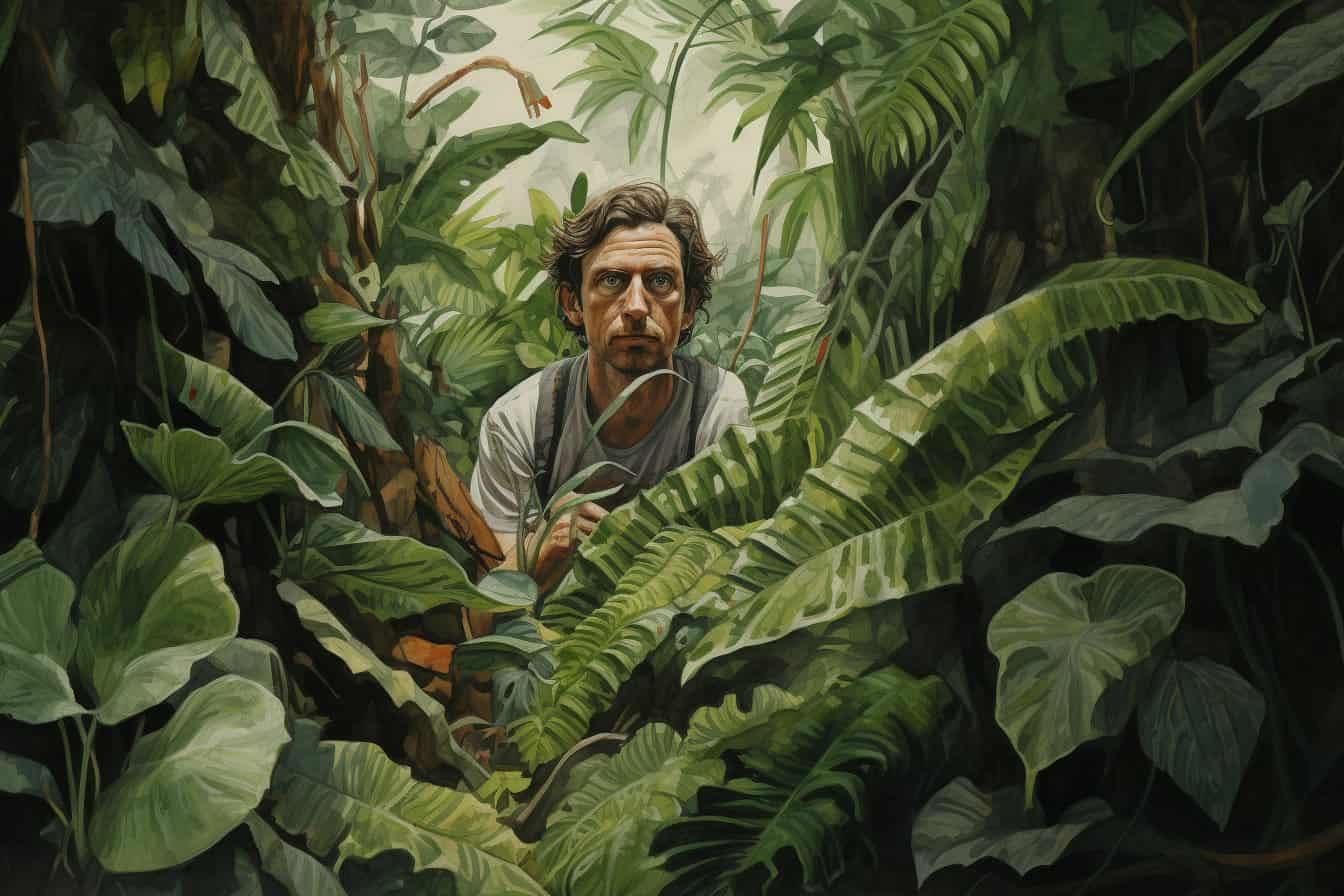Jake Walker never imagined his dream vacation to the Amazon rainforest would turn into a survival nightmare. His plane, a small chartered flight meant to take him to a remote eco-lodge, crashed amidst the dense canopy. When Jake regained consciousness, he found himself alone, battered, but alive.
The first days were a blur of pain and disorientation. Jake’s only companions were the jungle’s cacophony of sounds and the looming presence of the wrecked plane. His first priority was finding water. He remembered a survival documentary he had watched years ago. Following animal tracks, he stumbled upon a stream, its clear waters a lifeline.
With water secured, Jake’s next priority was shelter. He salvaged what he could from the plane: a tattered parachute, a few first-aid supplies, and a utility knife. Using the parachute, he constructed a makeshift tent, anchoring it between two trees. It wasn’t much, but it provided protection from the elements.
Hunger gnawed at Jake constantly. The first few attempts at fishing were frustratingly unsuccessful. He fashioned a spear from a sharpened stick, spending hours honing his technique. On the fourth day, he finally speared a fish. The small victory brought tears to his eyes. He learned to identify edible plants and fruits, supplementing his meager diet.
The jungle was a constant challenge. Jake faced torrential rains, aggressive insects, and the ever-present danger of predators. He had a close encounter with a jaguar, the big cat prowling just outside his shelter one night. Jake lit a fire, the flames and smoke driving the beast away.
Days turned into weeks, and Jake settled into a routine. He explored his surroundings cautiously, marking trees to find his way back. He improved his shelter, reinforcing it with branches and leaves. He found solace in the rhythm of survival, but the loneliness was oppressive.
Jake never gave up hope of rescue. He created signals, using mirrors and makeshift flags from the parachute’s material. Every day, he climbed a tall tree near his camp to scan the horizon for any sign of help. Weeks turned into months, and still, no one came.
One day, while foraging, Jake heard an unfamiliar sound – the distant hum of an engine. Heart pounding, he ran towards the noise, clambering up a hill. Through the trees, he saw it – a helicopter! With a burst of adrenaline, he lit a signal fire, the thick smoke curling into the sky.
The helicopter hovered, then descended. Rescue workers emerged, astonished to find Jake alive. They had been searching for months, the dense jungle making it nearly impossible to locate the crash site. Jake’s meticulous signals had finally paid off.
Back in civilization, Jake was overwhelmed by the rush of sensations – the noise, the people, the sheer volume of everything. The transition was difficult. He was celebrated as a modern-day Robinson Crusoe, his story captivating the world. But Jake struggled with the memories, the primal instincts that had kept him alive now jarring against everyday life.
Months passed, and Jake began to find a new balance. He wrote a book about his experiences, sharing the lessons he learned from the jungle. He returned to the Amazon, not as a survivor but as an advocate, working to protect the very jungle that had tested him so fiercely.
Jake’s ordeal had changed him. He had faced the heart of the jungle and come out alive, a testament to the resilience of the human spirit. And though the jungle would always be a part of him, he embraced his new life with a profound appreciation for the world he had almost lost.


